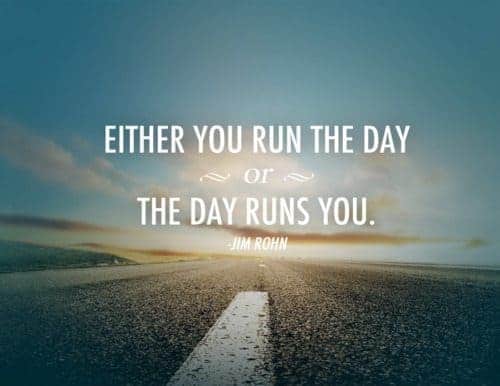Unlock Your Critical Thinking Potential: 6 Practical Tips for Better Decisions
Discover how to become a critical thinker and make better decisions.
Learn how to improve the quality of your thinking.
Sadly, many people don’t realize that having critical thinking skills does not mean thinking critically of themselves or others.
Critical thinking means using rationality and evidence in problem-solving and decision-making.
Most of us (myself included on occasion) make choices and solve problems by what feels best.
We’re only human.
So we may find this truth-be-damned perspective emotionally satisfying – although it’s based on feelings rather than on being able to substantiate our opinions with facts.
Unfortunately, that’s NOT what critical thinking is about.
In fact, emotional reactivity couldn’t be more opposite of this valuable and essential life skill.
Critical thinking is a way of processing information based on evidence and what we know to be true.
Its enemies are emotions masquerading as knowledge, irrationality, and relying too much on gut or intuitive feelings (the latter have their place as adjuncts to critical thinking but should not be mistaken for it or used in its stead).
Can one learn to be a better critical thinker?
Here’s what comprises critical thinking – and how to apply it in everyday decision-making.
6 tips on how to become a better critical thinker
1. Keep an open mind.
You can’t think critically, that is, in a discerning manner, if you’ve already made up your mind about how to solve a problem.
Critical thinking means being open to ideas and concepts which you may not have previously considered.
It means not shutting out new information because it happens to fly in the face of your assumptions.
It involves not making up your mind until all the facts are in, nor hand-picking facts to fit into and support prior assumptions.
2. Listen more than you talk.
Listening is a vital part of learning.
If we keep talking about our ideas, how will we ever learn about someone else’s?
Skilled critical thinkers are interested in others’ ideas, often more than they’re interested in their own.
They want to gather new and varied information to think differently.
Their goal is not to be right but to base actions on facts.
How many of us have that outlook on life and learning?
3. Be willing to experiment.
Being or becoming a critical thinker is difficult if you’re afraid of making mistakes.
The best thinkers are those who take ideas out on a test drive and see how they do.
They are curious and ask questions: Does my idea work?
Will it measure up?
How does it stack up against reason and evidence?
In fact, skilled thinkers don’t view making errors in thinking as a negative judgment of themselves.
They look at errors as teaching them what doesn’t work so that they can move on to what does.
4. Don’t rush to judgment.
Most of us like to get problems solved quickly.
We don’t like to hem and haw and feel or see ourselves as indecisive.
This is partly because we don’t live in a culture or country that values deep, incremental thinking and measured decisions or process over-achievement.
We like rapid-fire answers to make a beeline to the next question.
Critical thinkers take their time and don’t feel an inner pressure to come up with an answer until they have the evidence to support it.
5. Re-assess constantly.
Humans engage in a dynamic called confirmation bias that is a substantial barrier to critical thinking.
Such bias involves choosing facts to support already-held assumptions and screening out those that counter what we believe.
For example, I am highly partial to Sarasota, where I have lived for over a decade.
I need to work hard to take in the negatives about my fair city because they go against my positive experiences.
Yet, critical thinking about my city means that I must be able to take in information, which is contrary to my experience.
6. Seek facts to become a critical thinker
Most of us are more comfortable in the realm of opinion than fact.
Facts are indisputable pieces of evidence.
We often need to search them out.
Nowhere is this truer than in the notion of truth versus “alternate facts.”
What a concept!
How would that notion fly on taking high school finals, an SAT exam, or Law Boards?
There may be diverse takes on statistics, where using different numbers produces different outcomes; but there are also hard, cold facts or truths which are provable and indisputable.
Our senses often tell us one thing: It appears to the eye as if the sun rises and sets.
However, we know this perception is caused by the earth’s revolution turning on its axis around the sun.
To be a critical thinker means setting aside perception and finding out what’s really going on.
How different the world would be if we all practiced critical thinking skills.
I’ve always wished we learned how to think in school rather than merely what to think.
Barring that happening, it is incumbent upon each of us to bone up on these rational, intellectual skills to tell fact from fiction – to make this world a better place for ourselves and those who will inherit it when we are gone.
Expand your ability to think critically today
I hope the ideas above will help you become a better critical thinker and live the life you deserve.
Do you have any other tips to help improve the quality of our thinking?
Tell us in the comment section below.
If you found this article helpful, don’t forget to click the share button.











